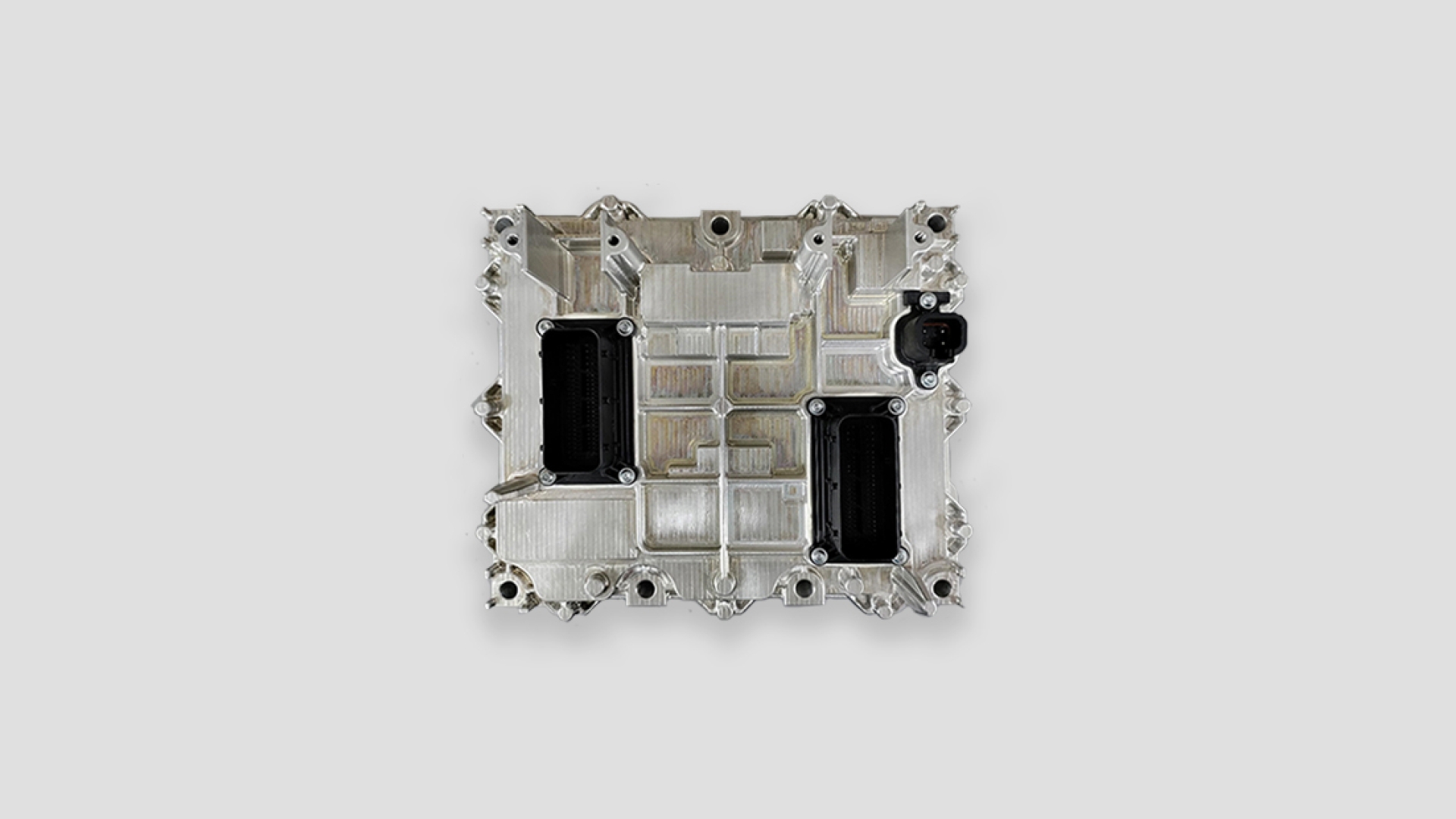How do ECMs work in fuel delivery systems across fuel technologies?
By Cummins Components Business Unit

The engine control module (ECM) is a critical component in the fuel delivery system in diesel, natural gas and hydrogen vehicles. This article looks at the role of ECMs in the fuel delivery systems across various fuel technologies like diesel, natural gas and hydrogen. As we examine modern fuel systems and fuel delivery systems, we will see how ECMs work with fuel delivery systems to keep vehicles moving on the road. The article will also explore how well-functioning fuel delivery systems help drivers and fleets achieve optimal performance and help them achieve their sustainability goals.
Click on the 'blue' spots on this interactive and find out more about ECMs in fuel delivery systems.
Fuel systems require dedicated hardware on the ECM to drive different fuel injector types
An ECM acts as a vehicle’s brain that is responsible for a wide array of functions, from managing engine timing and fuel delivery to regulating emissions and maintaining fuel efficiency. The ECM processes data from numerous sensors throughout the vehicle to make real-time adjustments to the engine's operations to achieve optimal performance. ECMs are highly fuel type dependent and contain software and capabilities to drive different injectors, sensors and other actuators for each fuel type.
The fuel systems require dedicated hardware on the ECM to drive different fuel injector types. Whether a vehicle runs on diesel, natural gas, or hydrogen, the fuel systems control module ensures that the fuel mix is highly optimized by the precise timing fuel delivery. This precise control is essential for optimizing performance, reducing carbon dioxide (CO2) and particulate emissions, and improving fuel economy. The fuel systems control module complements the ECM's functions, ensuring the engine's smooth operation across various driving conditions.
The fuel systems control module is especially critical in vehicles that use gaseous fuel types like natural gas or hydrogen. Here the control of fuel flow needs to be highly precise due to the fuels' gaseous and highly flammable nature. Fuel valves are also different in natural gas and hydrogen engines compared to diesel and gasoline. Diesel, for example, is a very stable liquid and does not evaporate easily and is less combustible, making it easy to store. Unlike diesel, natural gas and hydrogen are highly volatile. Utilizing a fuel systems control module helps to prevent issues/potential danger and operate vehicles with the highest degree of safety and reliability.
An ECM tailored for fuel delivery systems, allows for more efficiency
As we have learned above, modern fuel delivery systems need extraordinarily complex management systems. To meet these requirements a Fuel Delivery System is needed for alternative technologies such as natural gas, hydrogen gas and hydrogen fuel cells. These systems are subject to stringent regulatory requirements and must maintain the highest standards of functional safety. The ECM's role is to ensure these standards are upheld and vehicle operation is conducted in the most safe and efficient way.
An ECM tailored for fuel delivery systems is capable of interfacing with a variety of fuel-specific control modules. This adaptability is crucial for maintaining system reliability and enabling comprehensive diagnostics. It allows for a more efficient and coordinated interaction with the vehicle's primary control systems.
Fuel delivery for alternative fuels with different characteristics from traditional diesel and gasoline demands a dedicated approach. The ECM for these systems is designed to manage the intricate variables of fuel behavior - variables that require precise monitoring and control. It oversees a network of sensors and navigates complex algorithms that are essential for the safe storage and delivery of fuel. The complexity and number of these inputs and outputs surpass what standard control modules can handle, necessitating a specialized ECM.
Moreover, the physical placement of fuel tanks in some vehicles can be challenging. They might be located at a distance from the ECM, which is another reason a separate ECM is necessary. It ensures that distance does not compromise the efficiency and safety of fuel delivery.
Evolving role of ECMs
Cummins is designing ECMs to not only be standalone units but also work in tandem with modern fuel delivery systems. This integration ensures that fuel is delivered efficiently from the tank to the engine, managing the additional valves and sensors that alternative fuels require. Cummins is dedicated to developing the next generation of ECMs for alternative to provide safe, efficient, and reliable fuel delivery systems across various fuel types.
The evolving role of the ECM in vehicles that run on alternative fuels like natural gas and hydrogen demonstrates the technological advancements currently underway in the transportation industry amid the transition to sustainable future. As we have seen, the ECM's ability to precisely manage fuel delivery is essential across the spectrum of fuel technologies, from traditional diesel to emerging alternatives like natural gas and hydrogen. By continuously refining ECM technology, Cummins is dedicated to delivering performance, efficiency, and safety, ensuring that diesel and alternative fuel vehicles not only meet but exceed the demands of the modern transportation industry.
Author Profiles
Related Tags